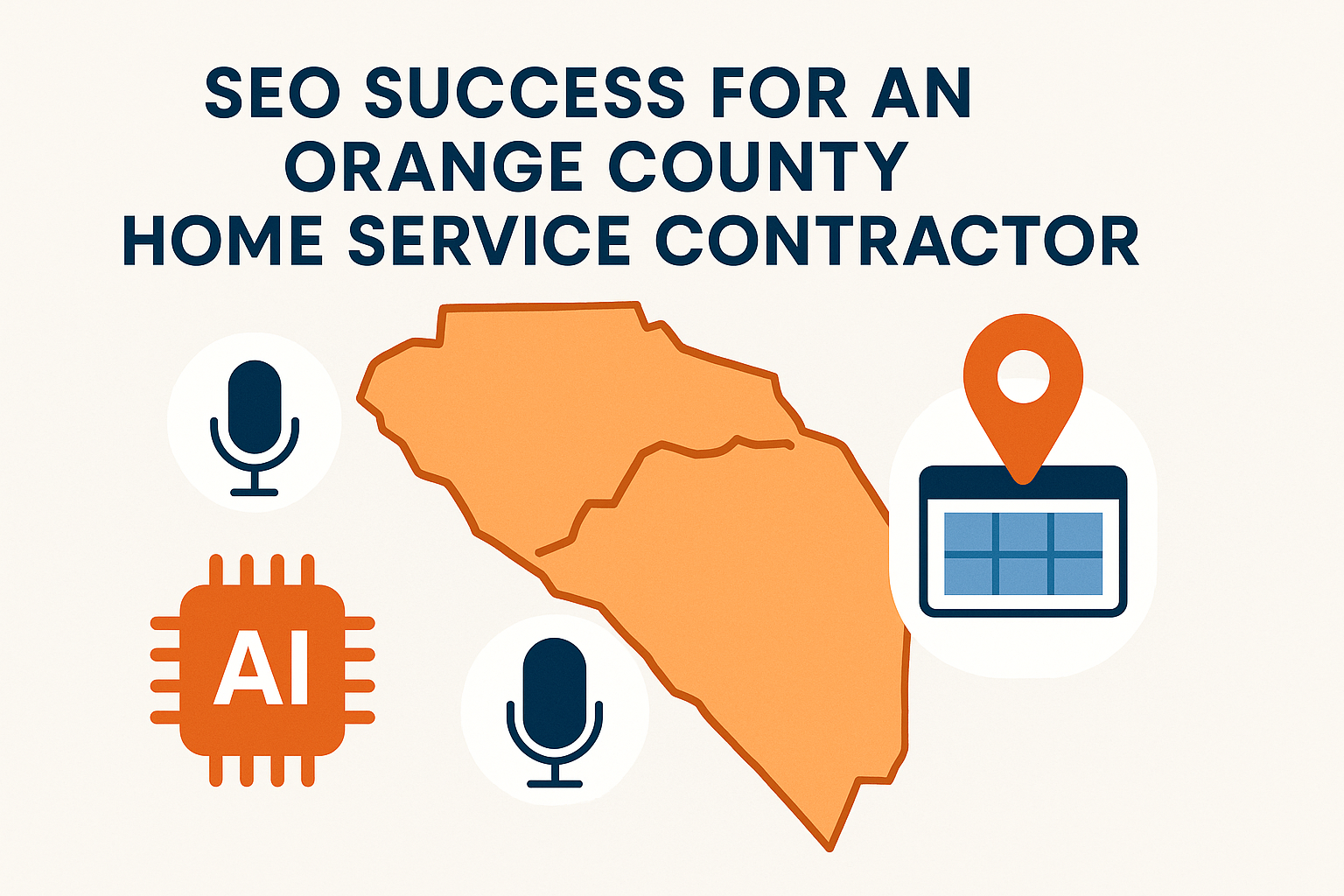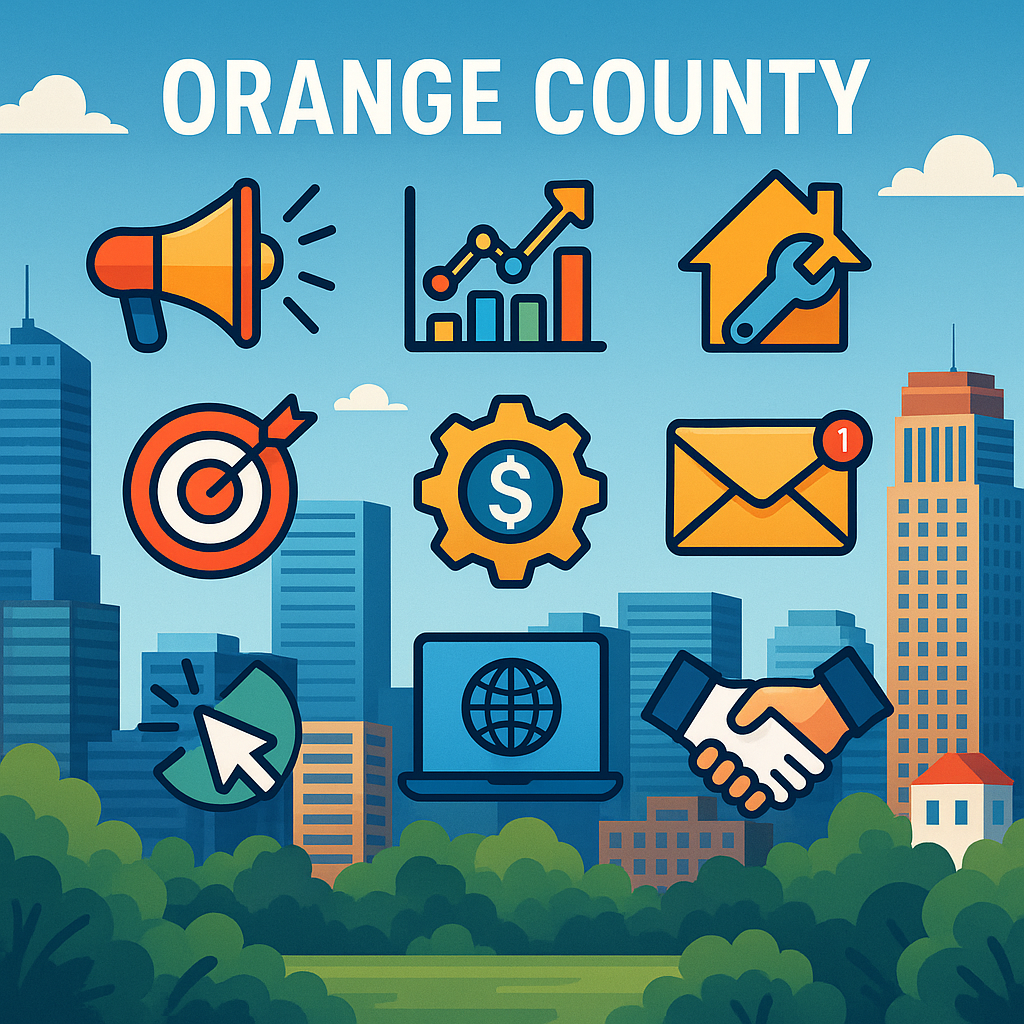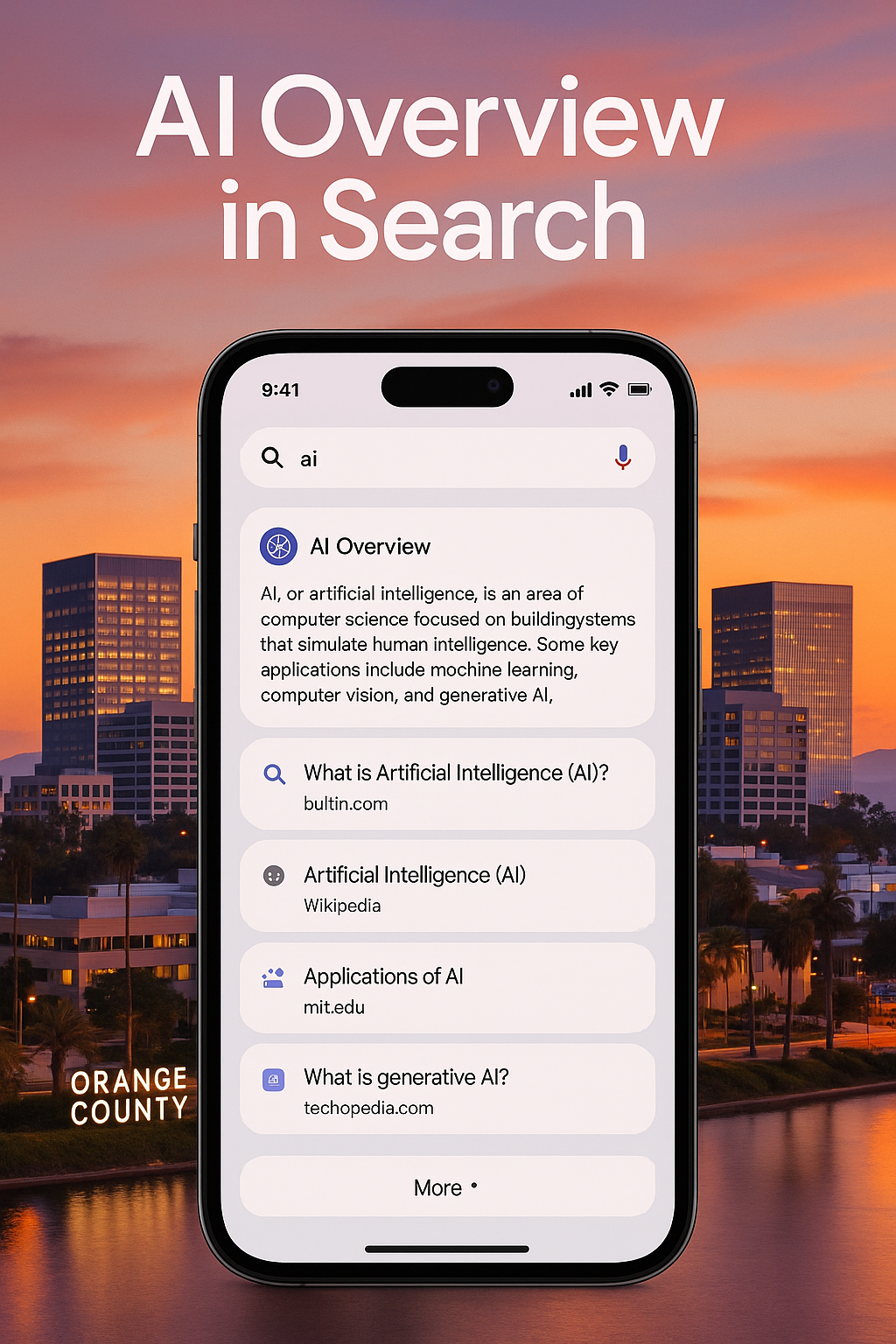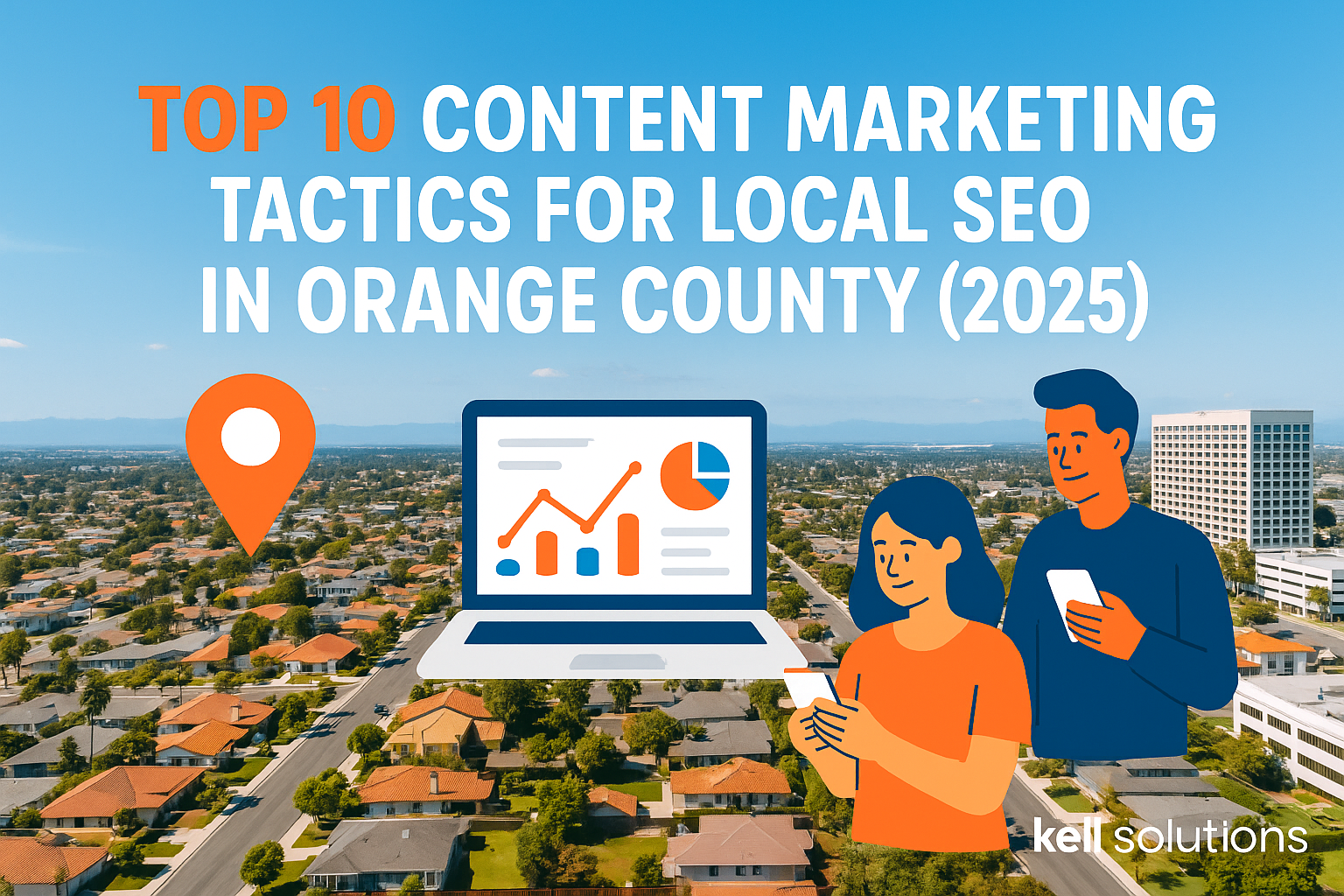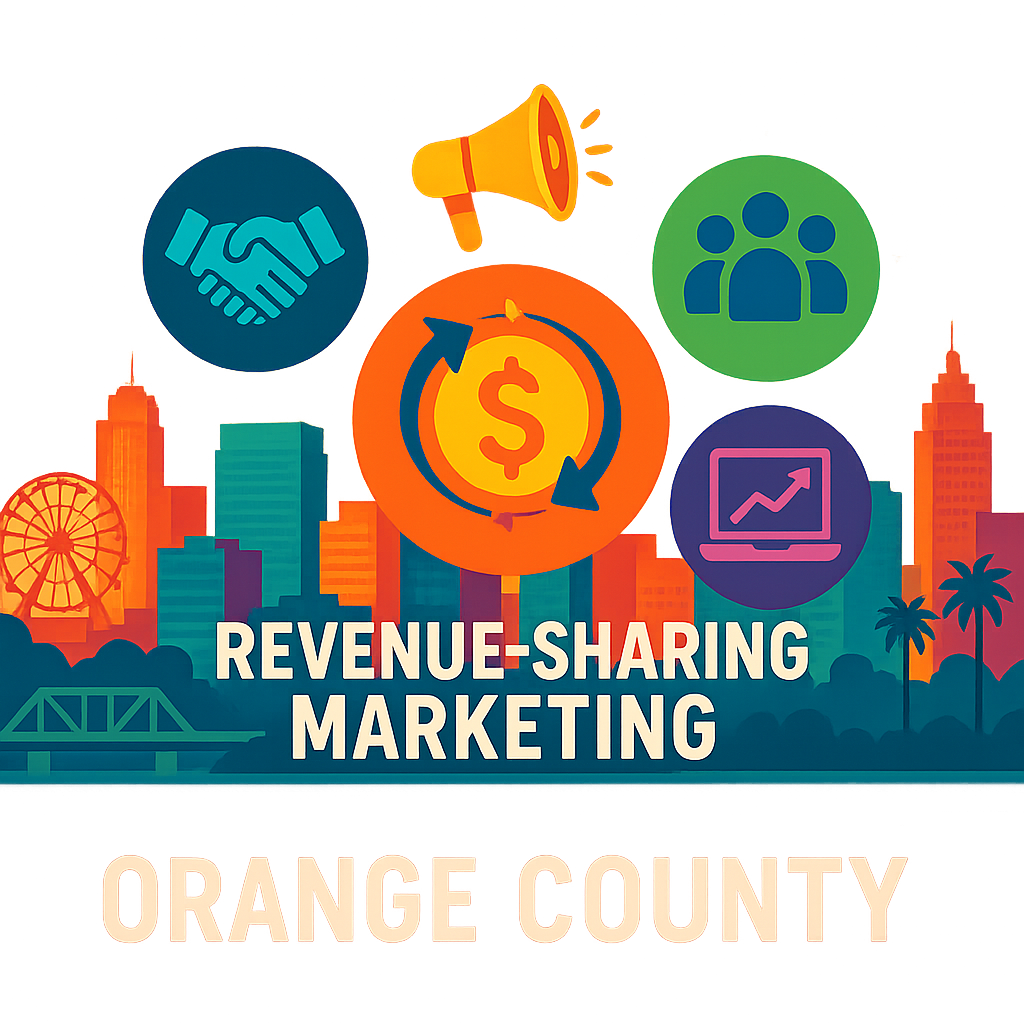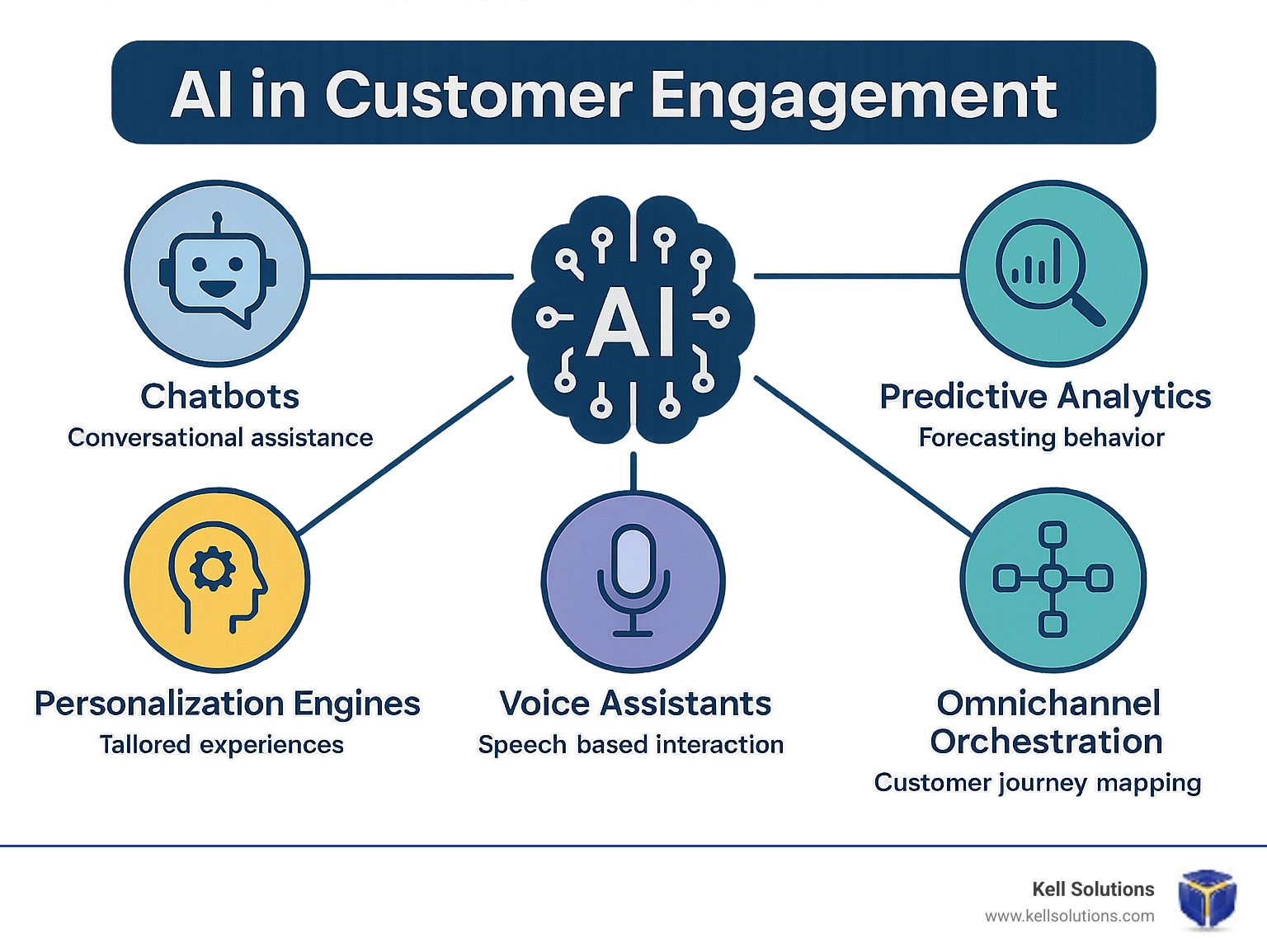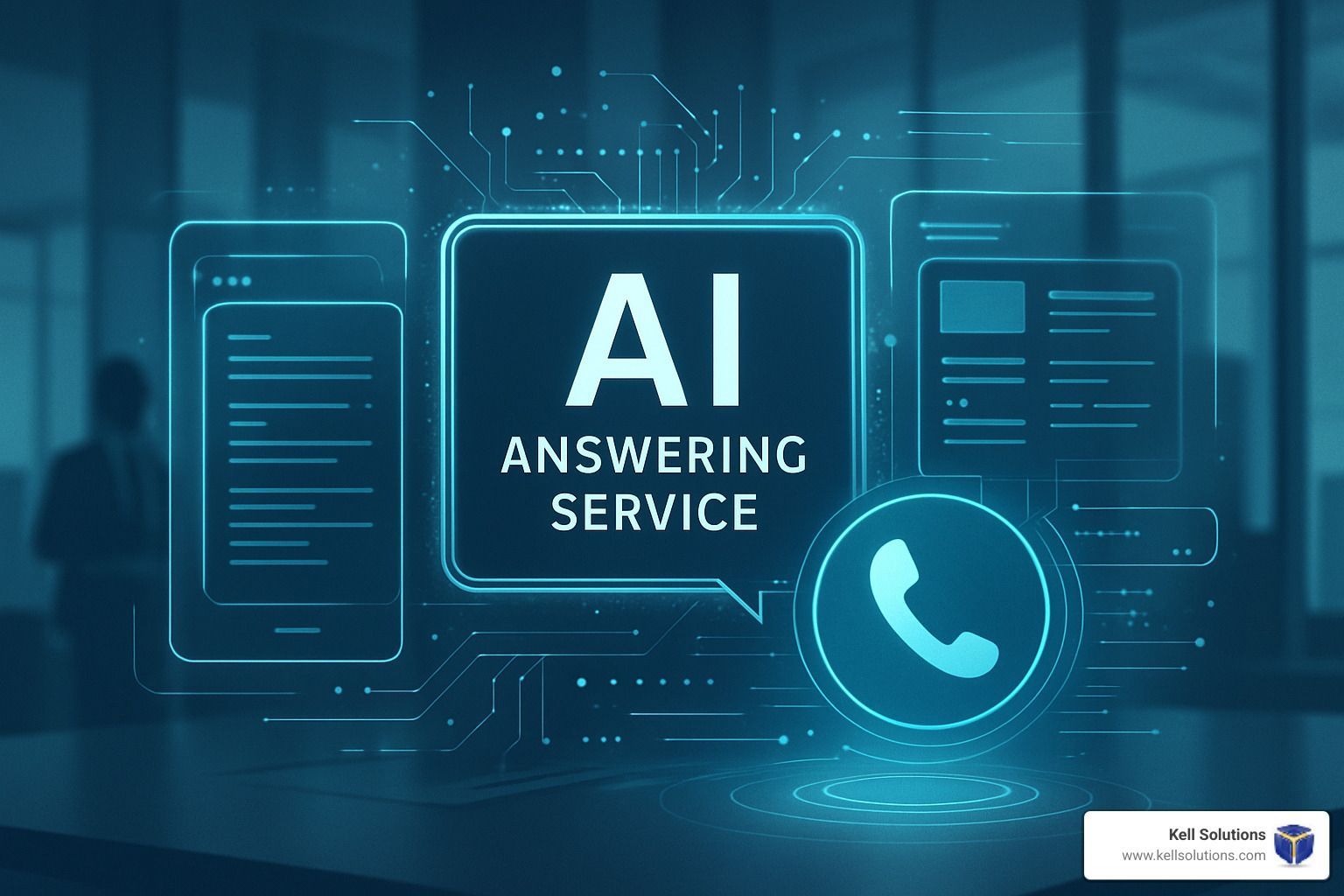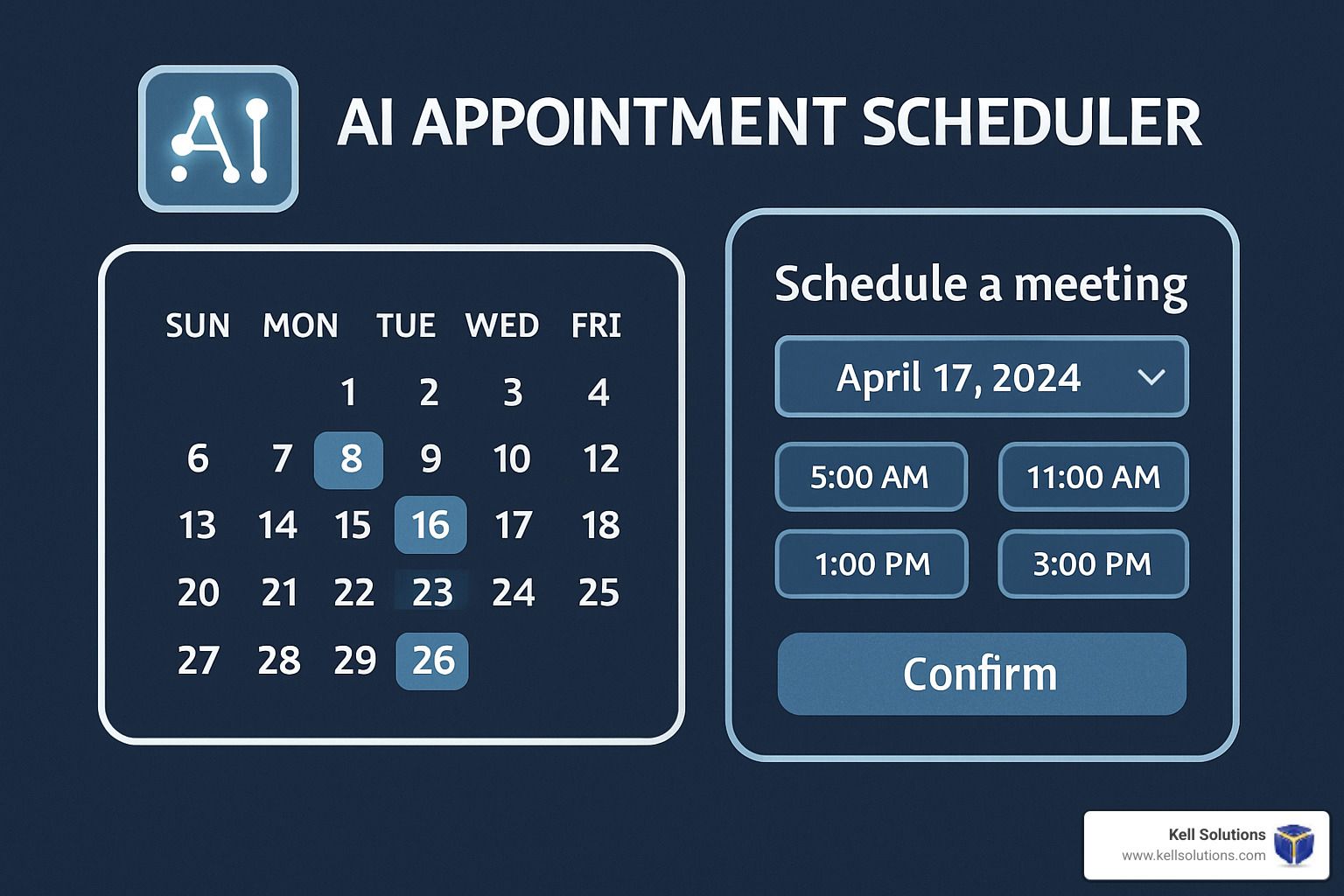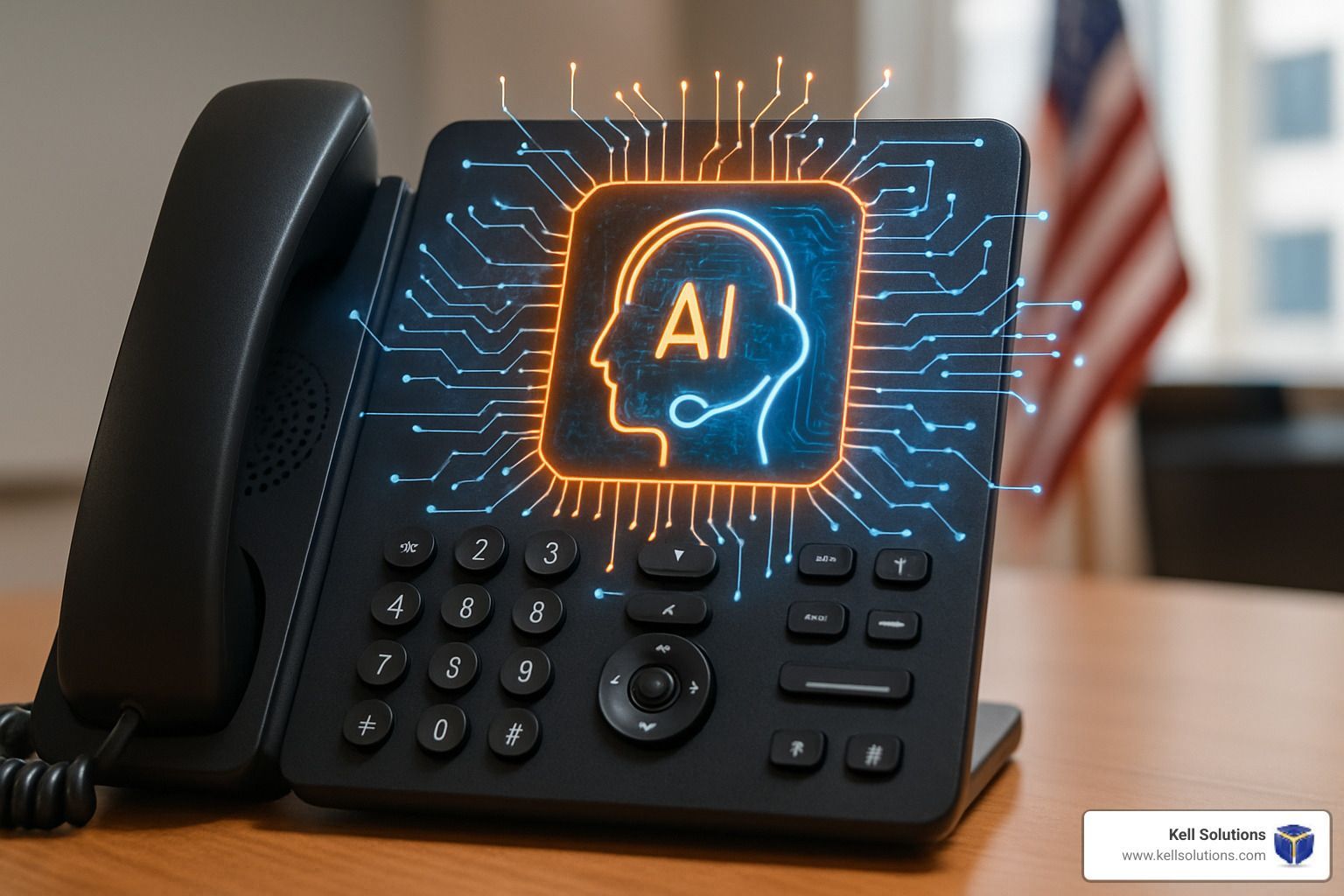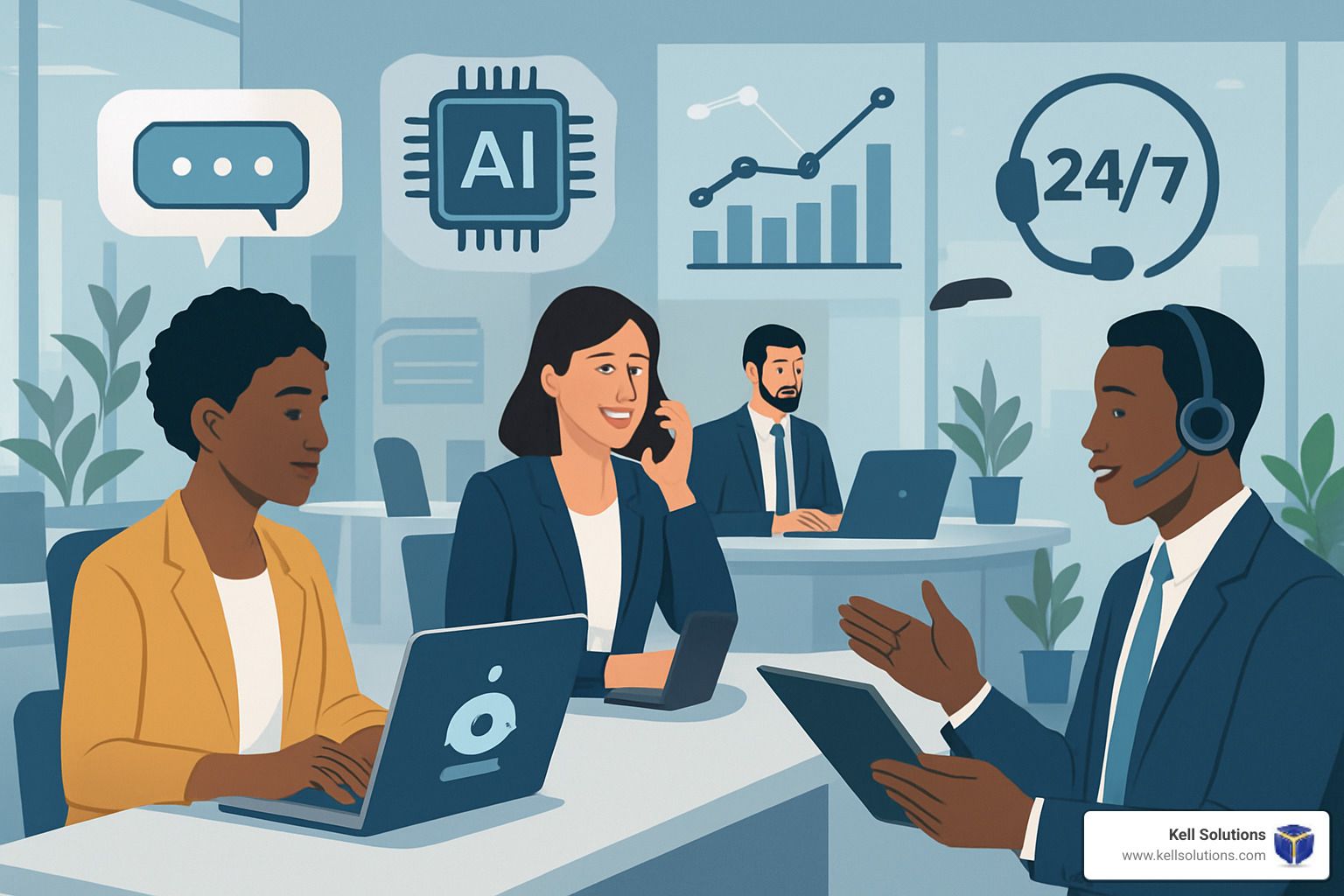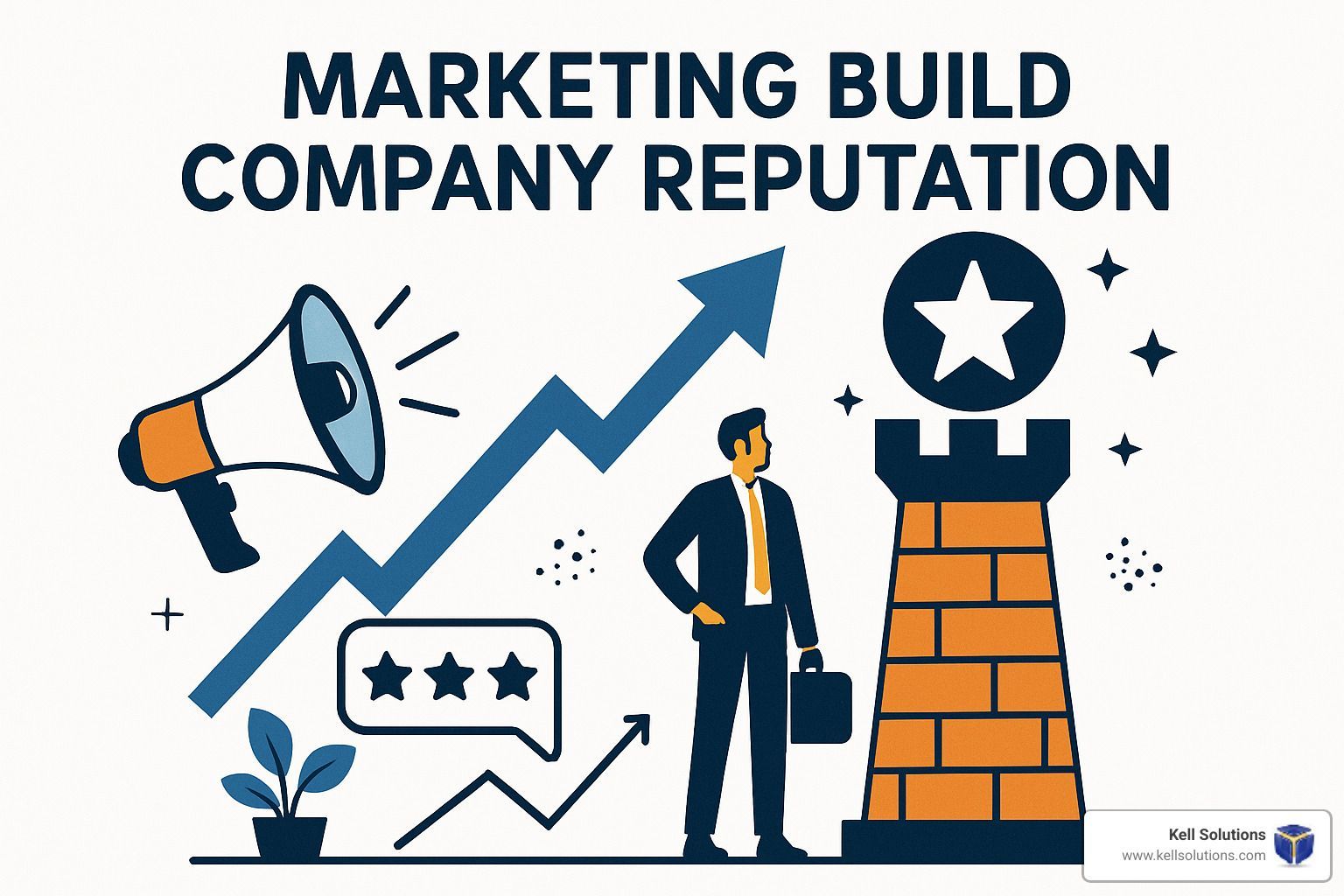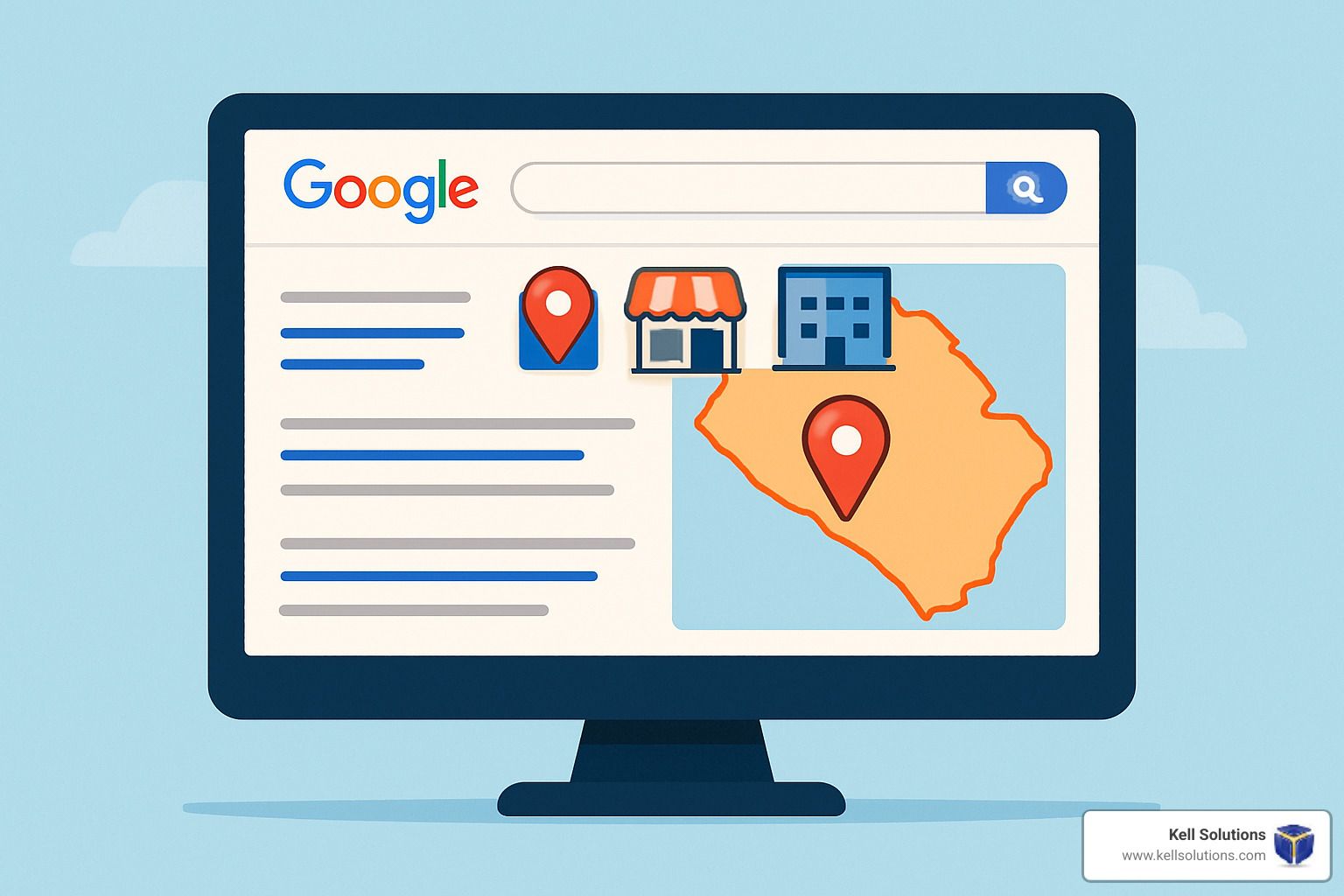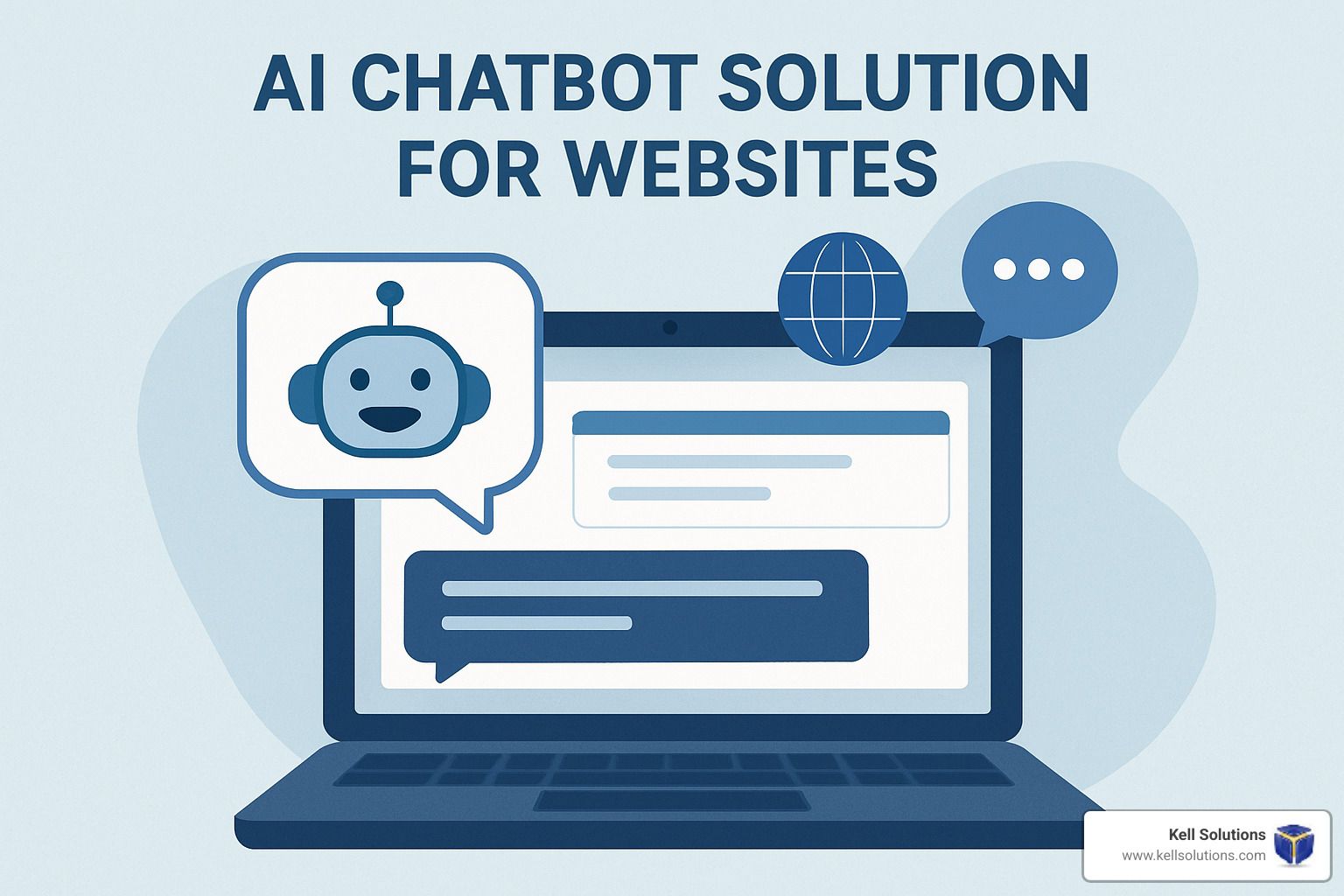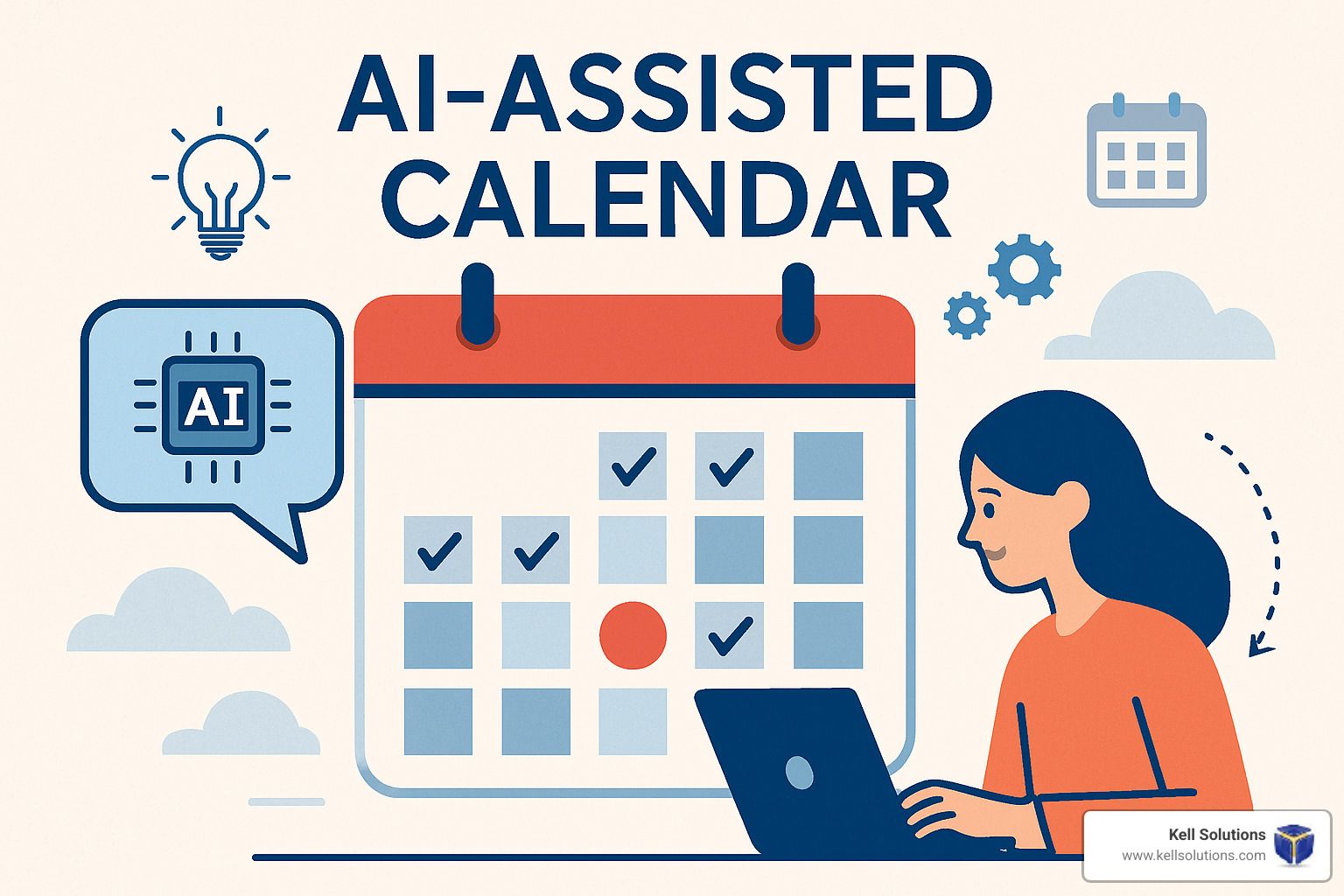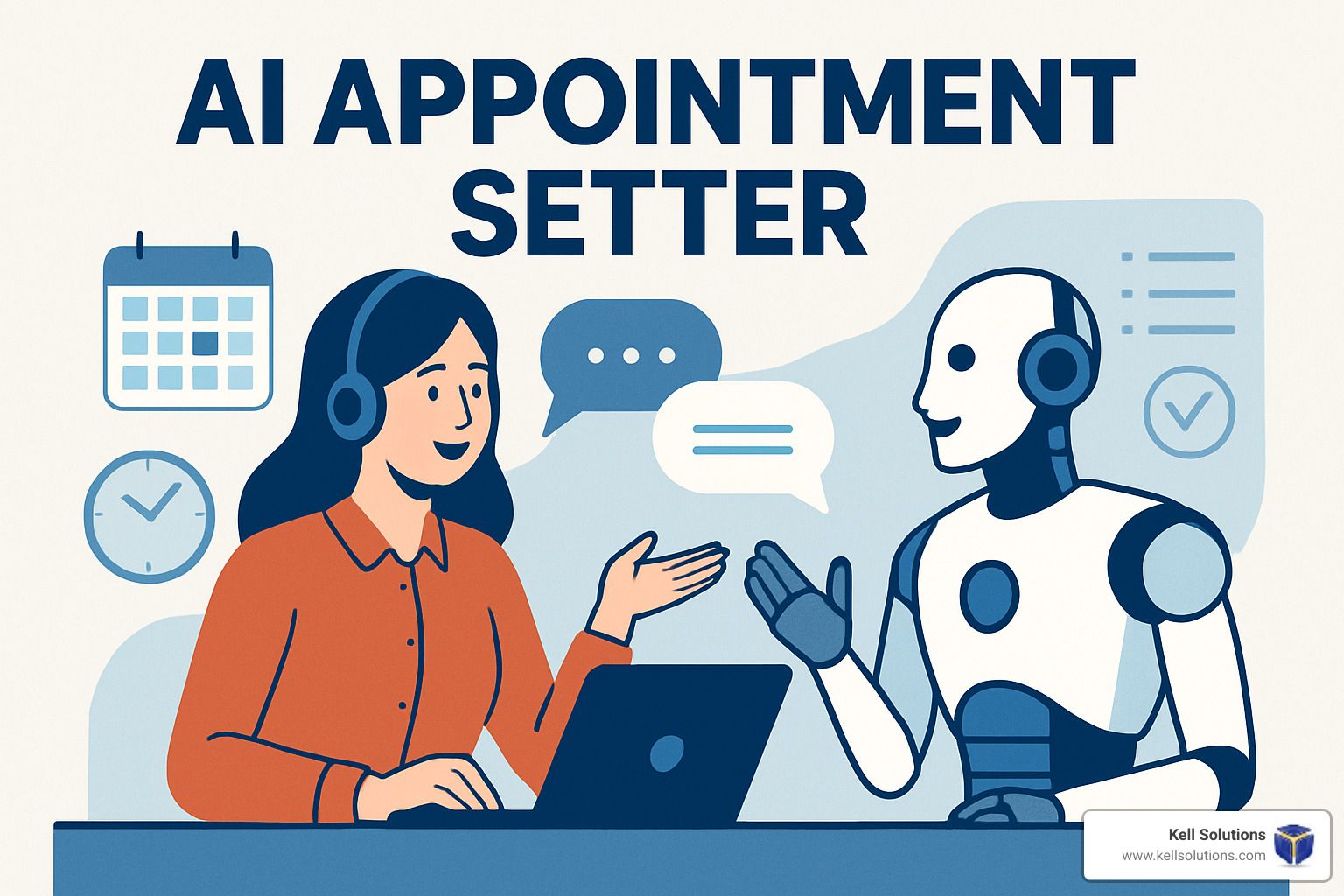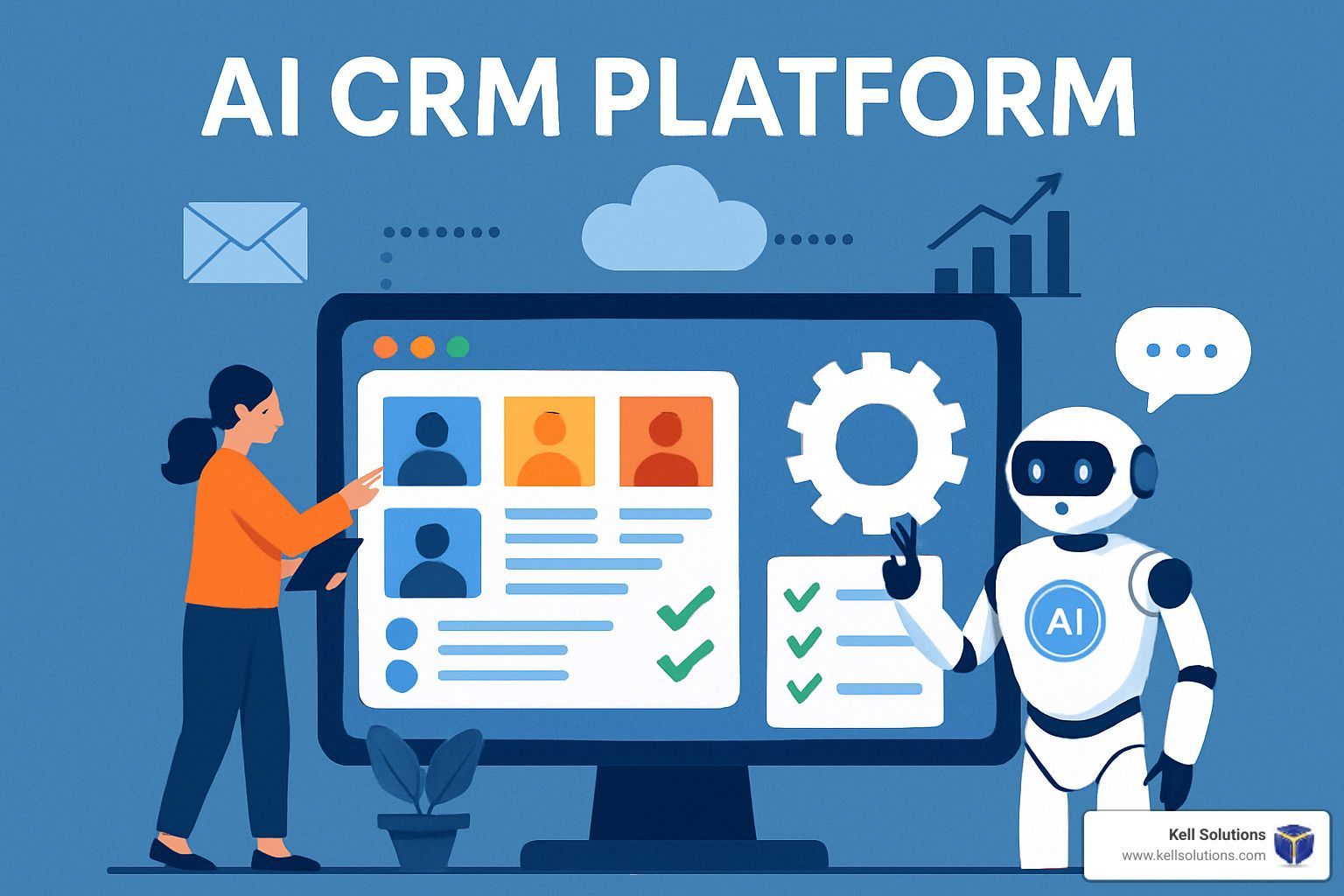Engage Smarter, Not Harder: AI's Role in Customer Engagement
The Future of Customer Engagement: How AI is Changing the Game
How AI technology will transform customer engagement is a shift that's fundamentally changing how businesses interact with customers. If you're looking for a quick overview, here's how AI is reshaping customer interactions:
| AI Technology | Impact on Customer Engagement |
|---|---|
| Chatbots & Virtual Assistants | 24/7 support, instant responses, reduced wait times |
| Predictive Analytics | Anticipates needs, prevents issues before they occur |
| Hyper-Personalization | Custom recommendations and experiences for each customer |
| Sentiment Analysis | Detects customer emotions to guide appropriate responses |
| Omnichannel Integration | Seamless experience across all platforms and touchpoints |
By 2025, AI will power 95% of customer interactions across phone calls, messaging, and online conversations. This isn't just a trend—it's a fundamental shift in how businesses connect with their customers.
How AI technology will transform customer engagement goes beyond simple automation. It's about creating more meaningful, personalized interactions that drive loyalty and satisfaction. Studies show that 73% of consumers believe AI can positively impact their customer experience, and businesses that implement AI-driven engagement strategies see up to a 33% increase in customer satisfaction.
The days of one-size-fits-all customer service are over. Today's consumers expect immediate, personalized responses regardless of when or how they reach out. While this might sound daunting for small businesses with limited resources, AI makes it possible to deliver exceptional service without expanding your team.
I'm Gregg Kell, founder of Kell Web Solutions, and I've helped numerous small businesses implement AI solutions that transform customer engagement strategies without overwhelming their resources or budgets. My experience has shown that even modest AI implementations can dramatically improve response times, customer satisfaction, and ultimately, your bottom line.
What Is AI-Powered Customer Engagement?
Imagine having a conversation with a business that remembers your preferences, anticipates your needs, and responds thoughtfully at 3 AM just as well as at 3 PM. That's the magic of AI-powered customer engagement.
At its heart, AI-powered customer engagement transforms ordinary business interactions into extraordinary experiences by using intelligent technologies to understand and respond to customers in ways that feel remarkably human. Unlike traditional approaches where staff follow rigid scripts and are limited by working hours, AI engagement creates connections that are responsive, personal, and available whenever customers need them.
How AI technology will transform customer engagement is through its core capabilities: machine learning that improves with every interaction, natural language processing that understands conversation nuances, and real-time data analysis that provides context for every customer touchpoint. This technology spans the entire customer journey—from the first curious website visit to post-purchase support years later.
What makes this approach truly powerful is what we call "empathy at scale"—the ability to deliver thoughtful, personalized experiences to thousands of customers simultaneously. This was simply impossible in the pre-AI world.
The public is warming up to these AI interactions too. According to research by Businesswire , 73% of consumers now believe AI can positively impact their customer experience. People are increasingly comfortable with AI interactions, especially when they deliver faster, more relevant service without the frustration of long wait times.
Key Differences From Traditional Approaches
Traditional customer service feels different from AI-powered engagement in ways you'll notice immediately:
Automation Depth: Traditional systems might handle simple tasks like sending appointment reminders, but AI tackles complex conversations, understanding context and responding appropriately when a customer asks, "Can I reschedule my Tuesday appointment to Thursday, and by the way, will the same technician be available?"
Predictive Capabilities: While traditional systems wait for customers to report problems, AI can notice patterns suggesting a customer might be struggling and proactively offer help. It's the difference between reacting to issues and preventing them entirely.
Always-On Service: AI doesn't need coffee breaks or sleep. It maintains consistent quality at 2 PM or 2 AM, providing answers when customers actually need them—not just during business hours.
Contextual Memory: Ever explained your issue to one representative, only to be transferred and have to start over? AI retains conversation history across interactions, creating continuity that's nearly impossible with rotating human teams.
Intelligent Human Handoff: The best AI systems know their limitations. They handle what they can and seamlessly transfer complex issues to human agents when necessary, passing along the full conversation context so customers never have to repeat themselves.
As one customer service leader put it, "Traditional systems tell you what happened yesterday. AI systems tell you what will happen tomorrow —and what you should do about it today."
How AI Technology Will Transform Customer Engagement
The change of customer engagement through AI isn't just a future possibility—it's happening right now across industries. Let's explore the key ways how AI technology will transform customer engagement in meaningful, practical ways that can benefit your business today.

Hyper-Personalization: how ai technology will transform customer engagement in real time
Imagine walking into a store where the staff instantly knows your preferences, remembers your past purchases, and can suggest exactly what you need before you even ask. This is what hyper-personalization through AI delivers in the digital world.
Unlike basic personalization (simply adding a customer's name to an email), AI-powered hyper-personalization creates entire experiences custom to individual preferences and behaviors. This happens through zero-party data collection, where customers willingly share their preferences through interactive experiences rather than businesses making assumptions.
Behind the scenes, sophisticated recommendation engines analyze thousands of products against your customers' unique preferences, creating matches that feel almost magical in their accuracy. Your website content, emails, and offers can adapt dynamically based on real-time customer behavior, creating a sense that you truly understand each person.
Some advanced systems even incorporate emotion recognition, detecting customer sentiment to adjust tone and messaging appropriately—just as a good friend would do in conversation.
The impact speaks for itself: personalized experiences facilitated by AI lead to a 33% increase in user satisfaction. Even more telling, 72% of shoppers only take action on marketing messages when they're customized to their interests.
At Kell Solutions, we've seen this firsthand. One of our professional service clients saw customer satisfaction scores jump by 27% after implementing our personalized AI voice agents that recognized returning callers and referenced their previous interactions—creating continuity that made customers feel valued and understood.
Predictive Analytics: how ai technology will transform customer engagement before issues arise
Perhaps the most impressive aspect of how AI technology will transform customer engagement is the shift from reactive to proactive service. Predictive analytics allows businesses to identify potential issues before customers even notice them.
Think about how much your customers would appreciate you calling to say, "We noticed something unusual in your account that might cause problems—let's fix it now," rather than waiting for them to find an issue and contact you in frustration.
This proactive approach works through sophisticated churn prediction scoring that identifies customers at risk of leaving based on subtle behavioral patterns. AI systems can forecast demand for products and services, ensuring availability when customers need them. They can even guide your team with next-best-action recommendations, suggesting the optimal response for each unique customer situation.
According to Genesys research, businesses implementing predictive service models see up to a 25% reduction in customer churn and a 20% increase in customer lifetime value—numbers that directly impact your bottom line.
Consider this real-world example: A utility provider using AI analytics can detect unusual usage patterns suggesting a leak or equipment failure, then proactively contact the customer with a solution before they receive a surprisingly high bill or experience service disruption. The customer feels protected and valued, strengthening their loyalty to the company.
AI-Powered Support: Chatbots & Virtual Assistants
Today's AI-powered chatbots and virtual assistants bear little resemblance to the frustrating, limited tools of the past. Modern conversational AI understands complex queries, maintains context throughout conversations, and provides genuinely helpful responses that leave customers satisfied.
The most obvious benefit is 24/7 availability—providing instant support regardless of time zone or business hours. But the real magic happens beneath the surface, with sentiment analysis detecting customer frustration or satisfaction to adjust responses accordingly, and intent-based routing that understands what customers need and directs them to the right resource.
Voice-enabled bots offer natural, conversational interactions through spoken language, creating experiences that feel remarkably human. And perhaps most importantly for both customers and businesses, these systems excel at first-contact resolution—solving problems without transfers or escalations.
The business impact is substantial: three-quarters of customer service professionals report that AI has helped them reduce response times, while companies implementing AI-powered support see an average 40% reduction in service costs alongside improved satisfaction scores.
Our VoiceGenie AI voice agents at Kell Solutions exemplify this change. They provide 24/7 call answering, lead capture, and appointment booking without the limitations of traditional systems. By understanding natural language and maintaining conversational context, they deliver an experience that feels personal and attentive—even at 3 AM when your human team is fast asleep.
Seamless Omnichannel Journeys
Modern customers don't think in terms of "channels"—they simply expect consistent experiences whether they're on social media, your website, email, or talking to your AI voice agent. AI makes this seamless experience possible by coordinating interactions across all touchpoints through sophisticated channel orchestration.
Behind the scenes, unified customer profiles maintain a single source of truth about each person, ensuring they never have to repeat information or explain their situation multiple times. AI-powered journey mapping identifies and removes friction points that might otherwise cause frustration, while generative AI creates consistent messaging across all channels.
Research confirms the value of this approach: companies with strong omnichannel engagement strategies retain 89% of their customers, compared to just 33% for companies with weak omnichannel strategies.
Imagine a customer researching a service on your website, receiving a personalized email with additional information based on what they viewed, scheduling an appointment through an AI voice agent that references that research, and receiving text reminders—all working together seamlessly because AI coordinates the entire journey. This creates an experience that feels thoughtful, coordinated, and respectful of the customer's time.
Success Stories & Metrics
The impact of AI on customer engagement isn't theoretical—major brands are already seeing remarkable results:
Amazon's Personal Fit uses an AI size-recommendation algorithm to generate billions of personalized fit recommendations monthly, reducing returns and improving satisfaction. Starbucks' predictive ordering system in their mobile app anticipates when customers will visit and what they'll order, creating a smoother experience for everyone.
Spotify's Find Weekly leverages AI to analyze listening habits and create personalized playlists, driving an impressive 40 million user engagements weekly. Expedia's ChatGPT travel planning assistant processes trillions of variables to create personalized itineraries that feel custom-crafted.
Here's how AI implementation typically affects key performance indicators:
| Metric | Before AI | After AI Implementation |
|---|---|---|
| First Response Time | 4+ hours | Under 5 minutes |
| Customer Satisfaction | 65-70% | 85-93% |
| Resolution Rate | 75% | 90%+ |
| Agent Productivity | 40-50 tickets/day | 70-80 tickets/day |
| Cost Per Resolution | $15-20 | $5-8 |
| Customer Retention | 70% | 85-90% |
These impressive numbers explain why 87% of retailers surveyed plan to expand their customer experiences with AI tools. The question isn't whether AI technology will transform customer engagement —it's whether your business will be among those leading the change or trying to catch up later.
Navigating Challenges & Mitigating Risks
Let's face it – implementing AI for customer engagement isn't all smooth sailing. While the benefits are tremendous, there are some very real challenges you'll need to steer along the way. Think of it as the "reality check" part of your AI journey.
Privacy concerns top the list for many businesses and customers alike. Today's consumers are increasingly aware of how their data is being used, and they expect you to be responsible stewards of their information. Alongside this, algorithmic bias remains a persistent challenge – AI systems can only be as fair and balanced as the data they learn from.
Governance is another hurdle many businesses stumble over. Without clear policies guiding your AI's decision-making authority (especially when interacting directly with customers), you risk inconsistent experiences or even PR nightmares.
How AI technology will transform customer engagement also depends heavily on how well it integrates with your existing systems. Those legacy platforms you've relied on for years? They might not play nicely with your shiny new AI tools without some significant work.
The human element matters too. According to HubSpot's research, while 84% of customer service professionals believe AI is crucial for meeting modern expectations, there's still significant anxiety about the technology. About 30% worry about AI potentially spreading misinformation, while 31% have serious data privacy concerns.
Change management often gets overlooked, but your team's resistance to new AI tools can derail even the most promising implementation. People naturally worry about what AI means for their jobs and daily workflows.
Transparency has also become non-negotiable. Customers increasingly want to know when they're chatting with a bot versus a human – and they'll feel deceived if you try to hide it.
Risk-Mitigation Best Practices
So how do you steer these choppy waters? Start with data minimization – collect only what you genuinely need to deliver value. It's the digital equivalent of traveling light – fewer bags means fewer things to worry about.
Protect what you do collect with robust encryption and clear consent processes. When customers understand exactly what data you're gathering and why, they're much more likely to feel comfortable with AI-powered experiences.
Training your AI on diverse, representative datasets helps prevent bias from creeping into your customer interactions. Your AI will reflect the data it learns from – make sure that reflection shows all your customers.
Regular audits aren't just good practice – they're essential safeguards. Schedule consistent reviews of your AI systems to catch any bias or performance issues before they impact your customer relationships.
Explainability mechanisms might sound technical, but the concept is simple: can you understand and explain why your AI made a particular decision? If not, you might need more transparent systems, especially for customer-facing applications.
Finally, design your AI with seamless human fallbacks. The best systems know their limitations and can smoothly transfer complex issues to your human team without making customers repeat themselves.
As one AI ethics expert I spoke with recently put it, "The goal isn't perfect AI—it's responsible AI that knows its limitations and works effectively with human teams."
At Kell Solutions, we've helped numerous businesses implement AI voice agents that balance cutting-edge technology with appropriate safeguards. The key is starting with a clear understanding of both the opportunities and challenges, then building systems that maximize benefits while minimizing risks.
When done right, how AI technology will transform customer engagement isn't about replacing human connection – it's about enhancing it through responsible, thoughtful implementation that puts customer needs at the center of every decision.
Choosing the Right AI Tools & Implementation Roadmap
Finding the perfect AI engagement tools for your business doesn't need to feel overwhelming. Think of it as mapping a journey that's uniquely yours - one that addresses your specific needs while delivering meaningful results along the way.

The most successful AI implementations start with honest reflection. What customer engagement challenges keep you up at night? Maybe it's missed calls after hours, inconsistent follow-ups, or the inability to scale personalized service. Identifying these pain points creates the foundation for your AI strategy.
We've found that businesses achieve the greatest momentum when they begin with quick wins- high-impact, relatively simple implementations that demonstrate value quickly. For many of our clients, this means starting with AI voice agents that immediately address missed calls and capture leads 24/7.
Scalability deserves careful consideration too. The AI solution that perfectly fits your needs today should grow alongside your business tomorrow. This forward-thinking approach prevents the headache of outgrowing your technology just as your team gets comfortable with it.
Before making any decisions, evaluate how new AI tools will integrate with your existing systems. The most powerful AI becomes significantly less valuable if it creates data silos or requires cumbersome manual processes to connect with your current tech stack.
At Kell Solutions, we guide businesses through this journey with our AI personalization tools that focus on the areas where how AI technology will transform customer engagement directly impacts revenue. Our voice agents excel at never missing opportunities - answering calls day or night, capturing important information, and booking appointments without human intervention.
Evaluation Checklist
When comparing AI engagement solutions, focus on what matters most for your specific business. Use case priority should drive your decision - which customer interactions would benefit most from AI improvement? For professional service firms, this often means ensuring every potential client call gets answered and every appointment opportunity gets captured.
The ease of use for both your team and your customers can make or break implementation success. Intuitive interfaces reduce training time and increase adoption rates.
In today's data-conscious world, robust security features aren't optional. Your customers trust you with their information, and your AI partner should take that responsibility as seriously as you do.
The quality of support available during and after implementation often distinguishes truly valuable partners from mere vendors. Look for a team that's invested in your success, not just your subscription.
Consider whether the pricing structure aligns with your expected usage and ROI. The best AI solutions deliver clear value that justifies their cost.
Finally, explore opportunities for pilot programs that allow you to test solutions in your specific environment before full deployment. This reduces risk and builds confidence in your chosen direction.
Successful AI implementation isn't about chasing the shiniest technology—it's about thoughtfully aligning capabilities with your specific business goals and customer needs. When done right, how AI technology will transform customer engagement becomes not just a concept but a tangible reality that drives growth and satisfaction.
Frequently Asked Questions about AI & Customer Engagement
What immediate benefits can small businesses expect?
Small businesses often worry that AI is too complex or expensive for them, but the truth is quite the opposite! Most of our small business clients see three powerful benefits almost immediately after implementation:
Extended availability becomes a reality overnight. Your business essentially stays open 24/7 without adding staff or overtime costs. One local accounting firm told me, "Our AI voice agent captured 23 leads in the first month that would have gone to voicemail after hours—that alone paid for the system several times over." This round-the-clock presence means you'll never miss another opportunity, even when you're enjoying dinner with your family.
Increased efficiency happens naturally as routine tasks shift to your AI assistant. Think about all those repetitive questions and basic scheduling tasks that eat up your team's day. When AI handles these, your human talent can focus on the creative, high-value work that actually requires their expertise and judgment—the stuff they probably enjoy more anyway!
Improved response times delight customers from day one. In today's "want-it-now" world, making customers wait even a few hours for a response can send them to competitors. AI responds instantly, whether it's 2 PM or 2 AM, dramatically boosting satisfaction. One client told us their customer complaints about response times dropped by 87% in the first week alone.
How do I keep AI interactions ethical and transparent?
Ethics in AI isn't just nice to have—it's essential for building lasting customer trust. The good news is that keeping your AI interactions ethical isn't complicated if you follow some straightforward principles.
Always provide clear disclosure when customers are interacting with AI. People generally don't mind talking to AI as long as you're honest about it. A simple "I'm an AI assistant" works wonders for setting expectations.
Build in easy escalation paths to humans. Even the best AI will encounter situations beyond its capabilities, and customers should never feel trapped in an AI loop. Our VoiceGenie AI includes natural transition points where customers can request human assistance.
Practice data transparency by clearly communicating what information you're collecting and how you'll use it. This isn't just good ethics—it's increasingly required by regulations like GDPR and CCPA.
Implement regular reviews of your AI interactions. At Kell Solutions, we help clients set up monthly audits to ensure AI responses remain aligned with their brand values and communication standards.
Finally, create simple feedback mechanisms so customers can report any issues with their AI experiences. This helps you continuously improve while showing customers you value their input.
Which metrics best measure AI engagement success?
Measuring the right metrics helps you understand if your AI investment is truly paying off. While there are dozens of potential metrics, these six provide the clearest picture of AI engagement success:
Customer Satisfaction Score (CSAT) tells you if your AI is actually making people happy. We recommend measuring this both for AI-only interactions and for journeys that include AI and human touchpoints.
First Contact Resolution Rate shows how often your AI resolves issues without human intervention. One legal services client saw this number climb from 45% to 78% within three months as their AI learned from interactions.
Response Time metrics highlight one of AI's biggest advantages—speed. Most of our clients see average response times drop from hours to seconds after implementation.
Conversion Rate matters tremendously for sales-focused interactions. How AI technology will transform customer engagement is particularly evident here, as sophisticated AI can often outperform humans at guiding prospects through initial qualification steps.
Cost Per Resolution helps quantify your ROI. By tracking how much each customer issue costs to resolve before and after AI implementation, you can demonstrate clear financial benefits.
Volume Handling capabilities often surprise our clients. One property management company went from handling 200 inquiries daily to over 800 with the same staff after implementing our AI voice agents.

The key to meaningful measurement is establishing clear baselines before implementation. Take snapshots of your current performance across these metrics, then track changes at 30, 60, and 90 days after launching your AI engagement tools. This approach creates compelling before-and-after stories that clearly demonstrate the impact on both customer experience and your bottom line.
Conclusion & Next Steps
The future of customer engagement is undeniably AI-powered, but success doesn't come from technology alone—it comes from putting your customers at the center of everything you do. Throughout this article, we've explored the many dimensions of how AI technology will transform customer engagement —from creating hyper-personalized experiences to anticipating needs before they arise.
The most successful businesses won't view AI as a replacement for human connection, but rather as a powerful amplifier of it. When routine tasks are handled efficiently by AI systems, your team can focus on those meaningful, high-touch interactions where human empathy truly shines. It's this balance—this partnership between AI efficiency and human warmth—that creates truly exceptional customer experiences.
At Kell Solutions, we've witnessed the transformative power of AI voice agents for businesses of all sizes. Our clients tell us that VoiceGenie AI has become their most reliable team member—never taking a day off, never missing a call, and consistently delivering a warm, helpful experience to every caller. The technology creates what we call a "single source of truth" about each customer, ensuring that every interaction builds upon previous ones for a seamless journey.
The beauty of AI-powered engagement is that you don't have to transform everything at once. Start small with your most pressing pain points—perhaps those after-hours calls that go to voicemail, or the routine appointment bookings that consume your staff's time. Even modest implementations can deliver remarkable results, often paying for themselves within the first month through captured leads alone.
The hybrid AI-human approach we advocate isn't just good for your business—it's what your customers increasingly expect. They want immediate responses when they reach out at 9 PM on a Sunday, but they also appreciate knowing a human is available when more complex issues arise.
Ready to see the difference AI can make in your customer engagement strategy? We'd love to show you how VoiceGenie AI can be customized to your specific business needs through a personalized demo.
Request a VoiceGenie AI Demo Today
📚 About the Author
Gregg Kell is a seasoned digital marketing strategist and founder of Kell Web Solutions, Inc., helping professional service firms grow through innovative AI-powered solutions like VoiceGenie AI. With over 20 years of experience in web development, lead generation, and business automation, Gregg is passionate about helping small businesses maximize growth and profitability through cutting-edge technologies.
When he's not helping businesses boost their bottom line, Gregg enjoys life by the beach in Laguna Beach, California, with his wife Debbie, celebrating over 40 years of marriage and entrepreneurial trips.
👉 Explore More from Gregg:
VoiceGenie AI Demo
| Missed Call ROI Calculator
| VoiceGenie AI Pricing


Orange County HVAC Google AI Overview Domination: 7 Proven Strategies to Capture Featured AI Results






